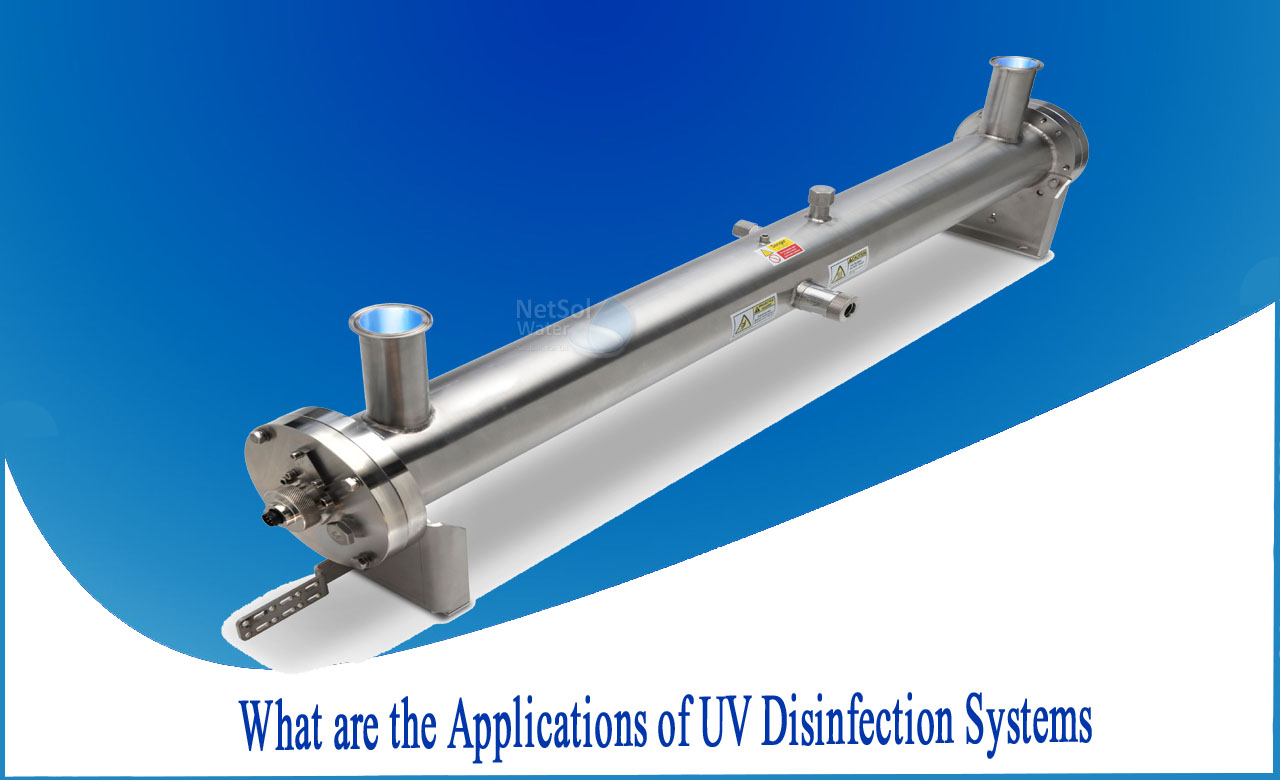What is a UV Disinfection System?
Ultraviolet radiation with a wavelength of 253.7 nanometers is used in UV water disinfection technology to kill bacteria, viruses, algae, molds, and other microorganisms that replicate and develop. UV disinfection kills bacteria by destroying their DNA, rendering them lifeless and unable to reproduce.
Drinking water disinfection, process water disinfection, wastewater disinfection, and surface disinfection can all benefit from UV disinfection technologies. This method may be utilized for TOC removal and Ozone destruction in addition to disinfection. There's also the UV sterilizer, which may be used in hospitals, industries, and workplaces.
What are the applications of UV Disinfection Systems?
A UV disinfection system is more than just a bulb in a pipe. The UV Reactor must be configured in such a way that all bacteria are exposed to enough UV light (dose). The reactor must be adjusted to control the flow in such a way that it maximizes residence duration and boosts turbulence, based on the hydraulic characteristics of water. In industrial applications, well-designed UV water disinfection systems routinely produce remarkable results.
Here are several examples:
Food and Beverage: UV disinfection systems can assist in achieving high-quality water that meets FDA standards (Food and Drug Administration);
Pharmaceutical businesses: Water used in pharmaceutical and healthcare goods, as well as water used for CIP (Cleaning in Place), must be devoid of chemicals such as chlorine, ozone, and microorganisms. For water disinfection, most pharmaceutical businesses rely on UV equipment.
Cosmetics: Microorganism- and toxin-free water ensures quality and extends the shelf life of cosmetics. UV Sterilization is the primary method of sterilization in the cosmetics business all around the world.
Centralized Drinking Water: A UV drinking water disinfection system is a simple, low-cost way to ensure that your house or workplace has pure water at every tap.
Disinfection and reuse of wastewater: UV Disinfection can assist tackle the challenges of water shortages and growing fresh water costs by treating wastewater at the tertiary stage. UV systems built specifically for wastewater can disinfect wastewater, allowing it to be reused for other uses like flushing and gardening.
Swimming pool: Traditionally, chlorine has been used in swimming pools to guarantee that the water is clean. However, it is becoming increasingly clear that chemical disinfection causes hundreds of new compounds to create when it combines with other organic materials which are harmful.UV is recognized as a safer and more cost-effective way to disinfect swimming pools.
Benefitsof UV Disinfection System
1: Environmentally friendly _ During the UV disinfection process, no toxic by-products are created.
2:Effective _ UV light is effective against all known bacteria.
3: Economical _ Among disinfection systems, it has the lowest running cost.
4: Chemical-free and safe – There are no chemicals added, therefore there is no risk of overdose.
5: Fast _ It's quick since it's in-contact purification.
6: Easy to Control — Well-designedUV systems, have innovative features like as CFD (Computational Fluid Dynamics), high-efficiency electronic ballasts, and incredibly precise UV intensity monitoring, making them highly effective and therefore easy to manage.
Technical assistance and guidance
Water pollution is a serious problem now-a-days, and Netsol Water is utilized in big businesses and industries to maintain water quality and cleanliness. We collaborate with a wide range of international organizations to tackle complicated water and wastewater problems by strategically integrating modern treatment technology with practical solutions.
If you need technical help and guidance, or simply have a query regarding our water and wastewater treatment technology solutions, contact one of our expert advisers via phone at +919650608473 or contact via email at enquiry@netsolwater.com



